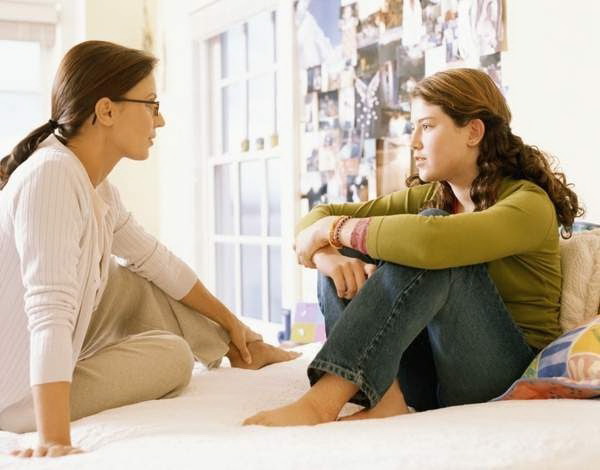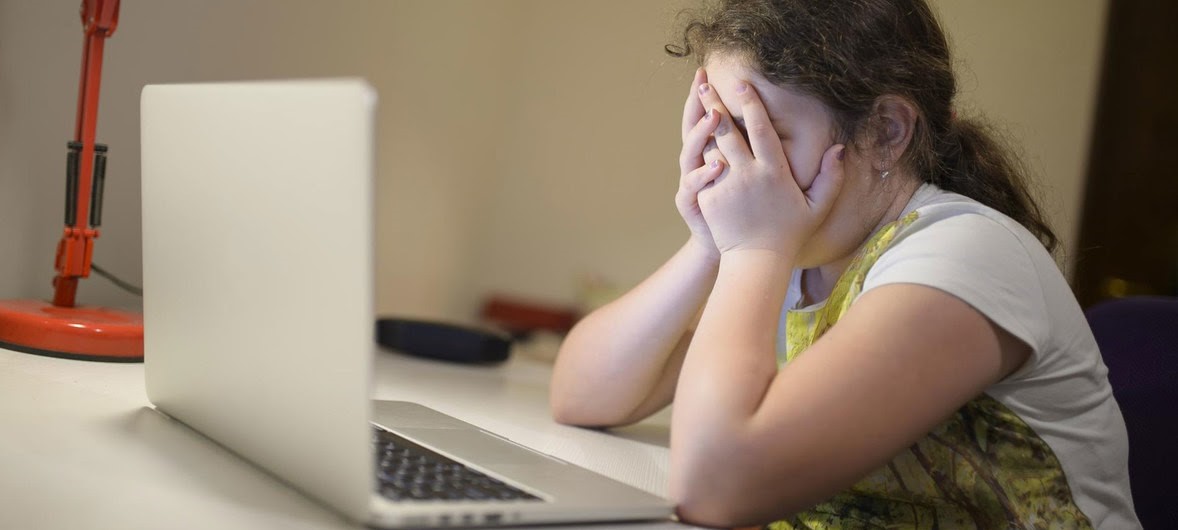
“Closeness and necessary distance, understanding and firm limits,
help and autonomy; all these will be balances
that each family will have to find.
We are finishing the third week since classes were suspended, and the insistence to stay at home is getting stronger, so many families are experiencing a 180-degree turn regarding routines and pre-existing habits. Perhaps for the little ones this represents a precious opportunity to be with their parents all day, but for teenagers being with their parents and away from their friends does not seem to be the best plan. Today we want to take a special look at the families in our community who have teenage children. We want to bring you closer and remind you of some of the most salient features of this stage so that together you can adjust expectations and support each other in these times of living together “24/7” as they tell us.
In recent weeks, in a campaign by the College's Communications team, several of the officials appeared in a message to the entire educational community reciting this phrase (hashtag) “far but close”. Perhaps if our young people wanted to give a video to their parents during quarantine, the phrase would be the opposite: “close but far”.
This new situation of confinement means that all family members lose, to some extent, part of their personal spaces, putting at risk one of the most important needs for the healthy development of adolescents. which is the appropriate distance from their parents, as well as contact with their peers. Have personal spaces and exchange with peers where there can be privacy It is very important for the well-being of young people. This is why we invite you to create healthy spaces of privacy for your children at home when they request it, whether to work or to communicate with others. We must not systematically interrupt them and we must tolerate and encourage contact with their peers through the networks. It will be important then to make the guidelines for handling cell phones more flexible, always being attentive to the ways in which children connect through these means and trying to talk about the responsible use of the device.
While it is important to give privacy, it is also necessary that we are attentive and close to accompany young people during this time. To be able to provide support and understanding so that they can express to us what they are feeling, whether it is regarding the pandemic or other concerns they may be having at the moment. But also to continue our task of helping to put order and limits, so necessary for the lives of adolescents.
 As adults, we may feel somewhat overwhelmed or stressed during these times, making it difficult to supervise and manage children's behavior at home. However, as we have already expressed in previous articles and as all mental health professionals have been mentioning, it is essential to In these times of uncertainty, generate some structure that allows for some security and certainty for the family unit, so it is worth making the effort to think of ways to achieve a new order together with your children.
As adults, we may feel somewhat overwhelmed or stressed during these times, making it difficult to supervise and manage children's behavior at home. However, as we have already expressed in previous articles and as all mental health professionals have been mentioning, it is essential to In these times of uncertainty, generate some structure that allows for some security and certainty for the family unit, so it is worth making the effort to think of ways to achieve a new order together with your children.
As we mentioned in the previous article It is not about reproducing the school day at home “although sometimes we might wish for it” but to create healthy habits and routines that are appropriate for each family reality. When thinking about these aspects, it will be essential to have realistic goals so as not to overexert ourselves. We want to emphasize here that there are no recipes for this; each of you knows your particular situation and knows the limits and potential of your family; the only thing we can and want to share with you are some criteria or ideas so that you can structure the new routine at home in a personalized way.
Talking to some of our students about their feelings during this time of quarantine, we received that many of them feel tired and overwhelmed with the new reality. Phrases like “I don't have days off”, “I'm doing school stuff all day and I can't complete it.”, “I feel like I want to do a lot of things but I don't do anything”, “It is difficult to organize work at home because there are many of us and we have few computers.”, “I can't organize my work and meet deadlines”, represent the feelings of many of our students regarding this new quarantine reality. Seeing this, it seemed important to us to highlight some criteria that allow us to help them give order and structure to their day.
- To begin with, it is important that there is a rhythm In the lives of children, there is a week and a weekend, work time and leisure time, exercise time and rest time. This is something that seems to have been lost for some during the quarantine period, with the consequence of generating a feeling of exhaustion and lack of discrimination that does not contribute to productivity or to maintaining good spirits.
- It is important to keep in mind that when we lose the external structure that organizes us (in this case the school) what comes into play are the mechanisms and skills of self-regulation each subject's own skills to face the tasks and - as Trías (2020) points out - these skills do not develop spontaneously but are learned and developed over time. Therefore, we recommend keep a close eye on your children in these first few weeks adapting to virtual work, as they may find themselves overexerted in their ability to organize themselves, losing most of their energy in starting engines, and being left with little or no fuel to follow the path of learning. If we see that we are not able to start the engines It is important to report to the tutor or other actors from the College to prevent the situation from spreading and frustration from setting in, affecting the student's motivation and consequently their adherence to work.
- Help them create calendars, schedules and keep track of the activities they are doing. Try to think about your biorhythms and in the possibilities of the family so that they can structure their day according to the school demands and family possibilities and personal characteristics. Not all people perform in the same way and at the same times of the day. This quarantine gives us a unique opportunity to think about how and when I feel best working and to make responsible use of this freedom. If there are several people at home and few computers, it will be important to use creativity and flexibility to be able to get everyone to work simultaneously. It is important to keep in mind that most of the work platforms proposed by the School can be used from a smartphone or tablet; so a student can connect to a physics class by “Meet” from his cell phone, while his brother completes a history assignment on the computer with a word processor, seeking to alternate the use of the devices in the most fair and convenient way possible.
- In addition to this it will be important to maintain adequate balance between obligations and leisure or pleasure activities. Some students may be having trouble finding time to have fun, while others may be having trouble cutting off time to do something. In either case, we need to help them rethink their activities to arrive at a healthy and responsible schedule.
- While it is natural for teenagers to spend more time connected with their friends through the networks and they will also be connected to schoolwork on their computers, it is important to continue Monitoring the use of video games and technology, keeping in mind that these should act as distractions and should be alternated with other tasks, otherwise they can generate sedentary lifestyle, anxiety and sleep disturbances.
- Finally, another typical characteristic of age that could be generating conflict or difficulties at home is the feeling of omnipotence and egocentrism that young people go through at this age. Perhaps this can be reflected in a low perception of risk in the current situation, which can make it difficult for them to sustain the movement limitations of quarantine, since this can be experienced from a self-centered place as a punishment imposed by caregivers. That is why the invitation should be for them to explore another of the potentialities that develop in adolescence that have to do with the altruistic behaviorIt will be important to change the focus of quarantine as a limiting situation for young people, to think of it as an attitude of care for the most fragile, among whom could be their own grandparents or loved ones. Likewise, we recommend helping them to move away from that egocentrism and Involve them in household chores, so that everyone can help take care of the home and that no one is exhausted by the situation. That is, we invite you to help them by looking away from your center and thinking about how this may be affecting others inside and outside the home and how they could help to alleviate the situation at home and in society as a whole.
In short: the parents of our adolescent students have the challenging task of supporting them at this time, showing the flexibility necessary to be close to them when they need us and leaving enough space for them to be able to sustain the task of their vital stage, which is separation and the formation of an autonomous identity. Necessary closeness and distance, understanding and firm limits, help and autonomy; all of these will be balances that each family will have to find, taking into account the characteristics of their children, their ages, and the challenges that this new context that we all have to live through will present to them. Cheer up, you can count on us to support you in this task.
Ps. Veronica Hughes
In the coming days, the Department will continue to provide guidance material.
In any case, if you have any specific questions that we –as technicians– can help you with on this or other issues, do not hesitate to write to us at
psychology@seminario.edu.uy and we will gladly get in touch.